Syrian dictator Bashar Assad, infamous for deploying chemical weapons against his own population, has fled Damascus as rebels seized control of the capital. According to reports from Reuters and Syrian state television, Assad, his wife Asma al-Assad, and their three children have left the country. Their destination remains unknown.
FOLLOW REAL-TIME UPDATES ON YWN’S LIVE BLOG
Assad’s departure marks the apparent end of over five decades of rule by the Assad family, beginning with his father, Hafez Assad, in 1970. The civil war that has gripped Syria since 2011, claiming over 500,000 lives, reached a turning point with the fall of Damascus and key cities like Aleppo, Hama, and Homs to rebel forces.
The coalition of rebels includes Hayat Tahrir al-Sham (HTS), a U.S.-designated terrorist organization and former Al-Qaeda affiliate, which played a decisive role in Assad’s ouster. HTS leader Abu Mohammed al-Golani, who has a $10 million U.S. bounty on his head, has reportedly attempted to rebrand his group as a more moderate Islamist faction, though experts warn that HTS aims to impose a strict Islamist regime akin to the Taliban.
Phillip Smyth, a senior fellow at the Atlantic Council, told Fox News Digital that “HTS is an outgrowth of Al-Qaeda and has connections to Turkey. Their endgame is to create a Talibanesque society with a few tweaks.”
An Associated Press journalist in Damascus reported seeing groups of armed residents along the road in the outskirts of the capital and hearing sounds of gunshots. The city’s main police headquarters appeared to be abandoned, its door left ajar with no officers outside. Another AP journalist shot footage of an abandoned army checkpoint where uniforms were discarded on the ground under a poster of Assad’s face.
Residents of the capital reported hearing gunfire and explosions. Footage broadcast on opposition-linked media showed a tank in one of the capital’s central squares while a small group of people gathered in celebration. Calls of “God is great” rang out from mosques.
It was the first time opposition forces had reached Damascus since 2018, when Syrian troops recaptured areas on the outskirts of the capital following a yearslong siege.
The advances in the past week were by far the largest in recent years by opposition factions, led by a group that has its origins in al-Qaida and is considered a terrorist organization by the U.S. and the United Nations. In their push to overthrow Assad’s government, the insurgents, led by the Hayat Tahrir al-Sham group, or HTS, have met little resistance from the Syrian army.
The rapid rebel gains, coupled with the lack of support from Assad’s erstwhile allies, posed the most serious threat to his rule since the start of the war.
Assad’s regime faced global condemnation for years for its brutal crackdown on dissent. What began in 2011 as peaceful protests during the Arab Spring escalated into a protracted civil war after Assad’s forces tortured and killed 15 boys in Daraa for anti-regime graffiti. The conflict saw Assad employ scorched-earth tactics, including indiscriminate bombings and chemical weapons attacks, such as the 2013 sarin gas strike that killed over 1,400 civilians.
Despite international outrage, Assad remained in power thanks to support from Iran, Hezbollah, and Russia, which intervened militarily in 2015. Recent developments, including weakened Russian influence due to the war in Ukraine and increasing Israeli strikes on Iranian assets, have shifted the balance of power in the region.
The fall of Assad’s regime has sent shockwaves through the Middle East. Both Egyptian and Jordanian officials reportedly urged Assad to form a government-in-exile, though Jordan’s government denied involvement.
As Damascus and other key cities fall under rebel control, questions remain about the future governance of Syria. The international community has long pushed for a ceasefire and democratic elections under United Nations Security Council Resolution 2254, but Assad’s refusal to engage with the resolution leaves Syria at a crossroads.
The dramatic collapse of Assad’s regime underscores the enduring impact of his decisions to prioritize repression over reconciliation. The boys of Daraa, whose graffiti sparked a revolution, may yet see their dream of a toppled regime realized, albeit under uncertain and precarious circumstances.
(YWN/AP)

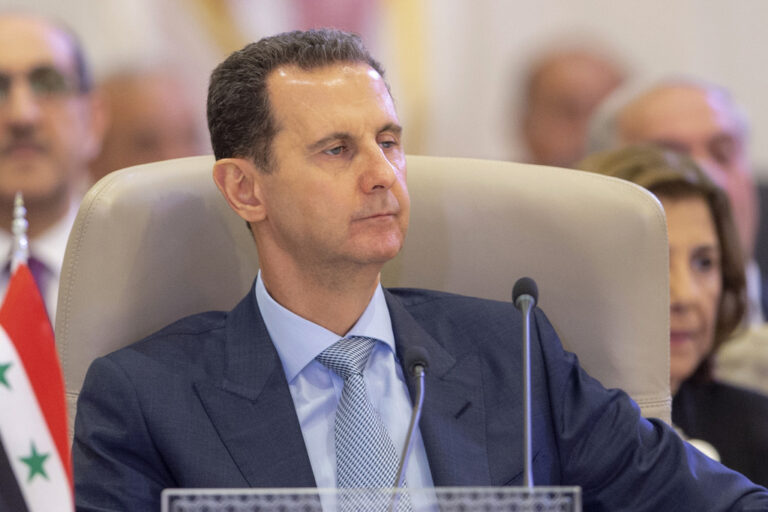

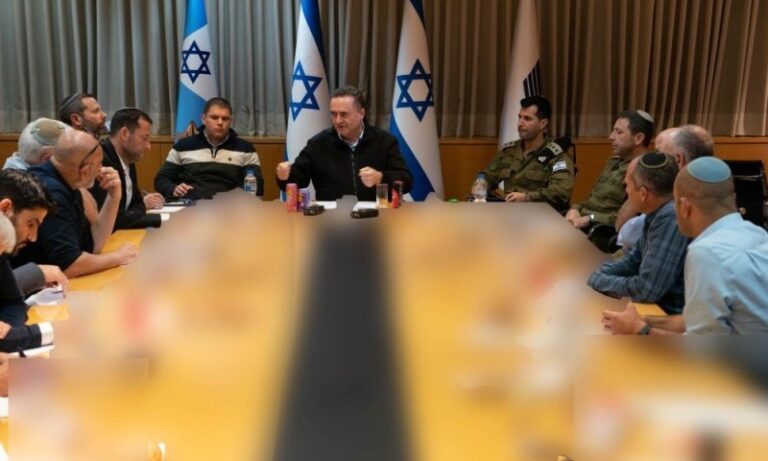

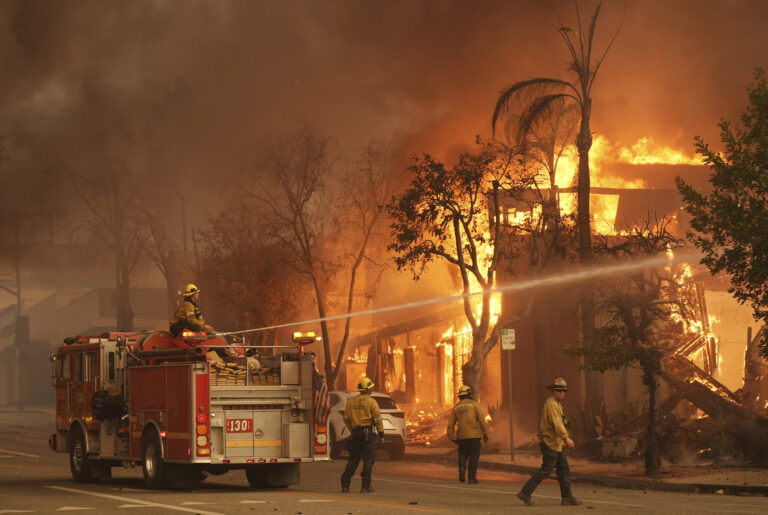

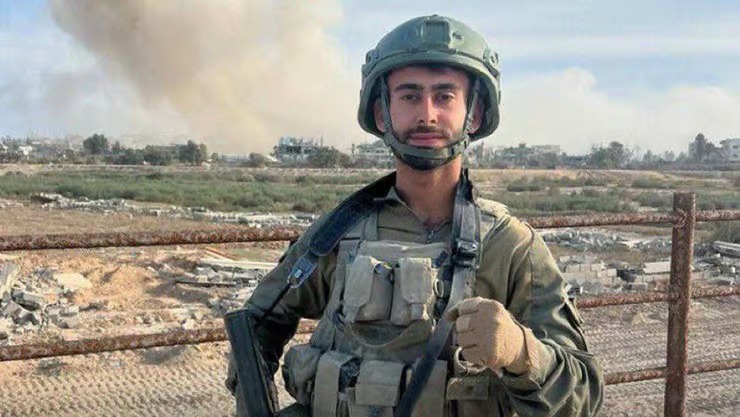

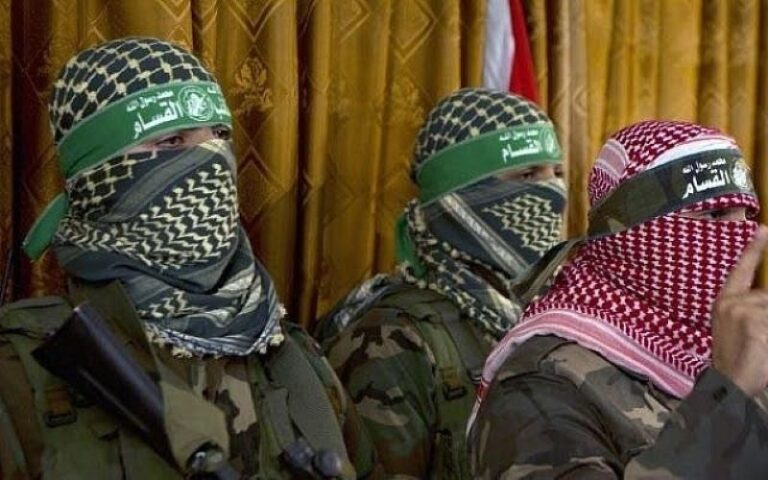


4 Responses
Confused article – out of date before it was published
“chairs his deletions” What does that mean?
SYRIA – ASSYRIA..
____
Psalm 83:
תהלים פג:
They have said: ‘Come, and let us cut them off from being a nation; that the name of Israel may be no more in remembrance.’
ו כִּי נוֹעֲצוּ לֵב יַחְדָּו; עָלֶיךָ, בְּרִית יִכְרֹתוּ. 6 For they have consulted together with one consent; against Thee do they make a covenant;
ז אָהֳלֵי אֱדוֹם, וְיִשְׁמְעֵאלִים; מוֹאָב וְהַגְרִים.
7 The tents of Edom and the Ishmaelites; Moab, and the Hagrites;
ח גְּבָל וְעַמּוֹן, וַעֲמָלֵק; פְּלֶשֶׁת, עִם-יֹשְׁבֵי צוֹר.
8 Gebal, and Ammon, and Amalek; Philistia with the inhabitants of Tyre;
ט גַּם-אַשּׁוּר, נִלְוָה עִמָּם; הָיוּ זְרוֹעַ לִבְנֵי-לוֹט סֶלָה.
9 Assyria also is joined with them; they have been an arm to the children of Lot. Selah
This is the way of dictators to get desposed:- Same fate befell Idi Amin DADA